Union Representation in Labour Disputes. Are unions bound by their...
Read MoreA Comprehensive Guide for an Employer Navigating the CCMA and Bargaining Council Arbitration process
The Commission for Conciliation, Mediation, and Arbitration (CCMA) and related forums such as Bargaining Councils stand as impartial authorities committed to upholding equitable labour practices within the workplace. Primarily tasked with facilitating the objective resolution of disputes between employers and employees, navigating the CCMA and Bargaining Councils play a pivotal role in fostering fair working environments.
Dispute Resolution Process:
In the event of a dispute, the process typically commences with conciliation, an informal discussion chaired by a commissioner. The aim is to foster mutual agreement between the involved parties. If an impasse is reached, a certificate of non-resolution is issued. Subsequently, the matter may progress to arbitration by filing a 7.13 form (Request for Arbitration).
Arbitration Process:
To initiate arbitration, parties must complete and submit a referral form within 90 days of the conciliation. For cases involving dismissal during a probation period or S73A-related amounts, the process seamlessly transitions into con-arb (conciliation/arbitration). This entails immediate arbitration following the conciliation on the same day, and objections to the CON-ARB process are subject to Section 191 read with rule 17(2) of the CCMA.
Preparing for CCMA Arbitration:
When a case advances to arbitration, thorough preparation is crucial:
- Submissions and Statements of Case: Parties may be required to submit statements of case detailing the dispute, admissions, denials, and intended evidence. Timely submission of these documents, along with all relevant case-related documentation, is imperative.
- Pre-Arbitration Conference: A pre-arbitration conference may be arranged if agreed upon by both parties or ordered by a commissioner. This aims to establish agreement on the nature of the dispute, with representation by an employers’ organization, legal practitioner, candidate attorney, or trade union.
- Witnesses: Select and prepare witnesses, ensuring their physical availability on the arbitration date. Parties can apply to the CCMA / Bargaining Council for a subpoena if a witness declines to testify voluntarily.
- Legal Representation: Engage legal representation, preferably a qualified and experienced employer organisation official, legal practitioner or candidate attorney, to navigate the complexities of the arbitration process.
Post-Arbitration:
Following the conclusion of the arbitration hearing, the presiding commissioner issues a final, unbiased decision in written form. Both parties are bound to adhere to the ruling within the stipulated timeframe.
For comprehensive guidance on CCMA / Bargaining Council proceedings, labour law, legal advice, and consultations, our team of experts is ready to assist. Contact Workplace Law Chambers to address your specific concerns and navigate the intricate landscape of dispute resolution.
Note: This article includes information sourced from the Official CCMA website.
Recent Articles
Understanding Bargaining Councils In South Africa: Their Role and Functionality
Understanding Bargaining Councils In South Africa: Their Role and Functionality...
Read MoreLabour Appeal Court Ruling Sets High Standard for Addressing Fake Sick Notes and Malingering
Labour Appeal Court Ruling Sets High Standard for Addressing Fake...
Read MoreDid Your Fixed-Term Contract Truly Expire?
Did Your Fixed-Term Contract Truly Expire? Fixed-term contracts are commonly...
Read More




